Series Retrospective: Our Gang
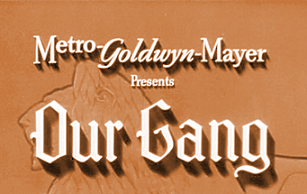
In 1938, Hal Roach sold everything associated with the Our Gang shorts he had produced for close to two decades, including the back catalog of films and the rights to the name, to the series’ distributor, MGM. The shorts had seen declining financial returns in recent years and Roach was more interested in pursuing new properties rather than trying to revive an existing one. After several years of less than stellar success, Roach bought back the shorts he had produced in the late 40’s. Since MGM retained the rights to the name Our Gang, Roach changed the title of his shorts to The Little Rascals, a variation on a name that had been originally considered and briefly used, Hal Roach’s Rascals. After a few years of revivals screenings in theaters, this package was sold to television in 1955 and this collection of shorts are the ones that most people today remember watching almost constantly in their formative years.
At a time when most short subject stars, like Laurel and Hardy, were being transitioned to features films, MGM made a bold decision and left the Our Gang comedies in their original format. Short subjects as a whole were declining in popularity due to theaters switching to double features to entice cash strapped audiences still recovering from the Depression. Backed by the MGM studios powerhouse of features though, Our Gang was guaranteed a home for at least the immediate future.
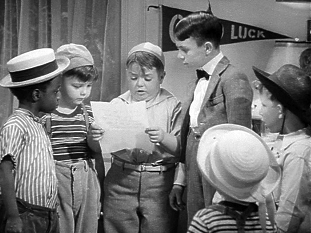
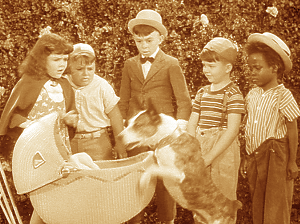
The initial MGM shorts followed the Roach formula closely but were still clearly inferior to their source. Standout early episodes include Practical Jokers, where Butch’s mother is inexplicably certain that the gang are Butch’s best friends and so must present him with the cake at his birthday party, and Auto Antics where a free for all soap box derby recalls many of the pre-MGM shorts. Stripped of its trademark lower class edge, the Our Gang series began a rapid decline into formulistic and repetitive plots. By the end of the first year, seemingly every other episode had the gang staging elaborate shows at the drop of a hat to raise money for the reason of the week.
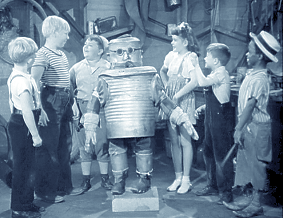
As the Our Gang comedies entered the 1940’s, MGM tried a few gimmicks to bolster the sagging series. A rival gang, the creatively named 3rd Street Bunch, was added to provide some conflict. While the episodes featuring the Bunch were not classics, they did at least give audiences a break from the overused “let’s put on a show” installments. Fighting’ Fools is both their debut and standout appearance as they battle the gang in a war of flying produce on a vacant lot. In Robot Wrecks, members of the Bunch pull a clever con on the Gang and convince them to buy “invisible rays” to make their cobbled together robot, or “row boat” as Spanky insists on calling it, work. The ensuing mishaps make this one of the better entries in the later MGM shorts but still not enough to slow the decline.
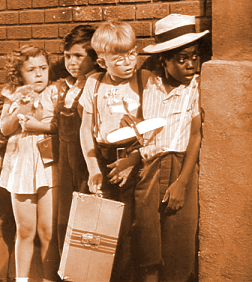
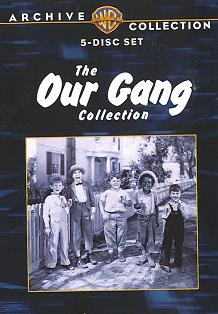 With Spanky, arguably the most identifiable member of the gang, departed, MGM squeezed out ten more shorts with the remaining cast. The final film, Dancing Romeo, was released to theaters in April of 1944 and then the Our Gang clubhouse was boarded up for good. MGM wisely passed on one last attempt to cross Our Gang with the Bowery Boys and a brief series of Gas House Kids features starring Carl “Alfalfa” Switzer and Tommy “Butch” Bond went to PRC studios instead. After seeing the success of the Hal Roach Little Rascals shorts in syndication, MGM sold the Our Gang series to television in a similar package. Whether it was because the Roach shorts were already established or that the syndication companies, and children, recognized an inferior product when they saw one, the Our Gang comedies were not carried as widely as The Little Rascals. I spent my entire childhood watching The Little Rascals’ shorts in syndication every weekday after school. I only remember seeing the Our Gang series for a year or two in the late 70’s on a channel out of Central Florida.
With Spanky, arguably the most identifiable member of the gang, departed, MGM squeezed out ten more shorts with the remaining cast. The final film, Dancing Romeo, was released to theaters in April of 1944 and then the Our Gang clubhouse was boarded up for good. MGM wisely passed on one last attempt to cross Our Gang with the Bowery Boys and a brief series of Gas House Kids features starring Carl “Alfalfa” Switzer and Tommy “Butch” Bond went to PRC studios instead. After seeing the success of the Hal Roach Little Rascals shorts in syndication, MGM sold the Our Gang series to television in a similar package. Whether it was because the Roach shorts were already established or that the syndication companies, and children, recognized an inferior product when they saw one, the Our Gang comedies were not carried as widely as The Little Rascals. I spent my entire childhood watching The Little Rascals’ shorts in syndication every weekday after school. I only remember seeing the Our Gang series for a year or two in the late 70’s on a channel out of Central Florida.
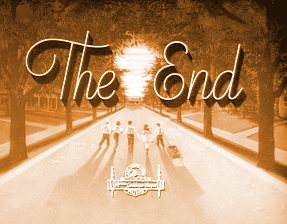 The fifty-two Our Gang shorts produced by MGM were released on DVD this month as part of the Warner Brothers Archive collection. As is typical of the WB Archive releases, this is an absolutely no frills DVD but the picture and sound quality on the shorts is very good overall. While the five disc set contains no liner notes or booklet and only a solitary photo, it does include an ominous warning on the jacket – “The Our Gang Collection is Intended for the Adult Collector and Is Not Suitable for Children”! Granted, some of the shorts do contain some minor racist content and a few scenes of children in unsafe activities, like super charging a go cart with sky rockets, but nothing close to what can be seen on any local television channel any weekday afternoon. Apparently what was acceptable for the previous generation to grow up with is now considered damaging to the current one. This set is, however, recommended to Our Gang fans of all ages and serves as a fascinating look at the decline and fall of a short film series that was produced for over twenty years and a staple on television for another thirty.
The fifty-two Our Gang shorts produced by MGM were released on DVD this month as part of the Warner Brothers Archive collection. As is typical of the WB Archive releases, this is an absolutely no frills DVD but the picture and sound quality on the shorts is very good overall. While the five disc set contains no liner notes or booklet and only a solitary photo, it does include an ominous warning on the jacket – “The Our Gang Collection is Intended for the Adult Collector and Is Not Suitable for Children”! Granted, some of the shorts do contain some minor racist content and a few scenes of children in unsafe activities, like super charging a go cart with sky rockets, but nothing close to what can be seen on any local television channel any weekday afternoon. Apparently what was acceptable for the previous generation to grow up with is now considered damaging to the current one. This set is, however, recommended to Our Gang fans of all ages and serves as a fascinating look at the decline and fall of a short film series that was produced for over twenty years and a staple on television for another thirty.
